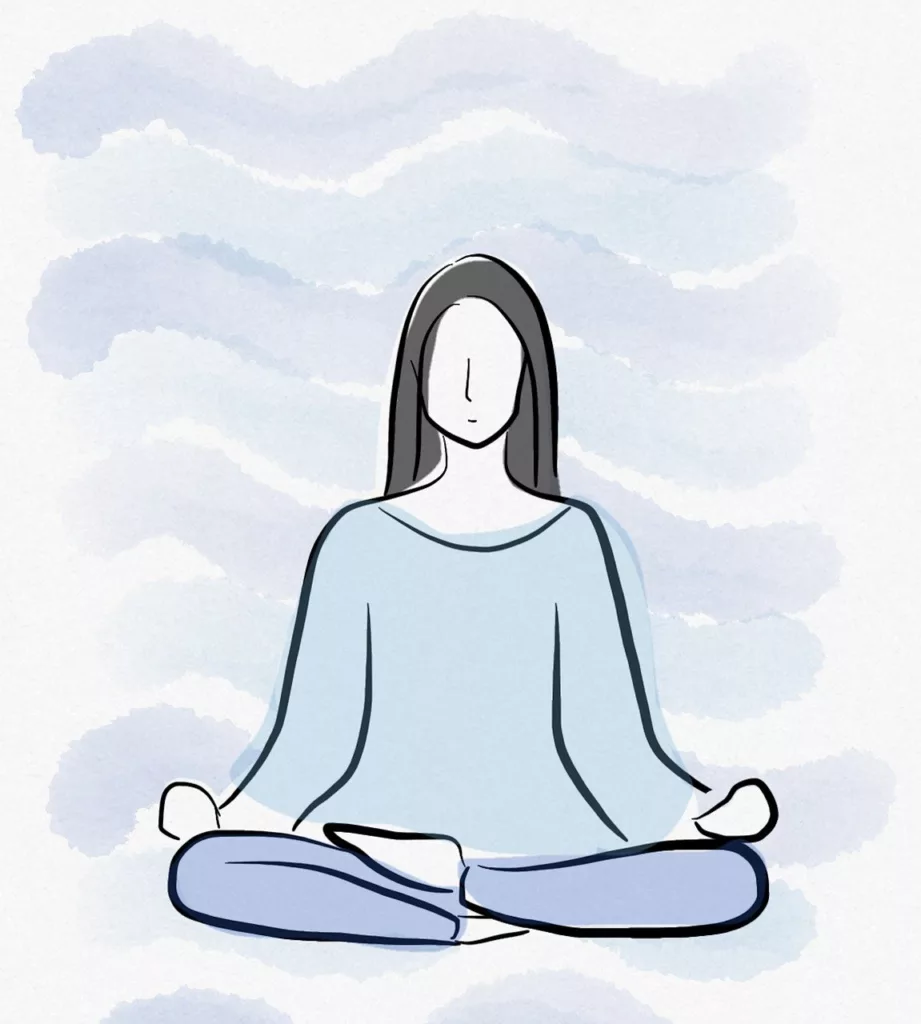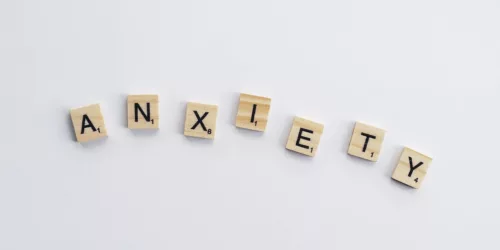Best books for anxiety and overthinking

Are you struggling with anxiety and overthinking? You’re not alone. Millions of people find these issues difficult to manage, but you don’t have to face them on your own. Take the story of Sarah – a woman in her late twenties who found herself dealing with crippling anxiety and overwhelming thoughts. After trying therapy and medication, she eventually stumbled upon books that helped her get back control over her life. From The Anxiety and Phobia Workbook to Feeling Good: The New Mood Therapy, Sarah discovered the best books for anxiety and overthinking that finally enabled her to make progress. In this article, we’ll look at six such books that could help you too.
Key Takeaways
- ‘Get Out of Your Mind and Into Your Life’ by Steven C. Hayes is a valuable resource for those struggling with anxiety and overthinking.
- The book provides practical advice and encouragement for managing anxiety and overthinking.
- Key takeaways include adjusting expectations, prioritizing self-care, boosting self-esteem, and embarking on a journey of self-discovery.
- The book emphasizes the importance of patience, dedication, and celebrating small wins on the journey towards mental clarity.
The Anxiety and Phobia Workbook
You’ll gain essential tools to manage anxiety and overthinking with The Anxiety and Phobia Workbook! This comprehensive workbook is written by Dr. Edmund Bourne, an expert in the treatment of anxiety disorders. He provides practical strategies for talking it out, mindful breathing, self-reflection strategies, positive self-talk, and coping mechanisms. You will learn how to identify your triggers and develop effective management techniques to reduce or eliminate symptoms of anxiety and overthinking.
The book starts off with an overview of the causes of anxiety and how it can be managed effectively through different therapy models. It then provides step-by-step instructions on how to use each strategy successfully. Throughout the book, you are encouraged to practice mindfulness exercises such as meditation and guided imagery that promote relaxation and calmness. Additionally, there are helpful exercises that focus on reframing negative thoughts into more positive ones in order to reduce stress levels associated with anxious feelings.
Underlying Issues contributing to Anxiety
This workbook also contains specific sections dedicated to helping you recognize underlying issues that may be contributing to your anxiety or overthinking episodes such as unresolved trauma from childhood or relationship conflicts. By working through these issues in a safe environment with the guidance of this book’s strategies, you can make progress towards resolving them effectively so they no longer have a negative impact on your life.
The Anxiety and Phobia Workbook is an invaluable resource for anyone suffering from anxieties or overthinking tendencies who wants to take control of their mental health journey without relying solely on medication or other outside sources of help. With its clear explanations of each strategy provided throughout the book combined with personalized approaches tailored specifically for each individual situation, this workbook offers valuable insight into understanding yourself better while also providing powerful solutions for managing your anxiety so you can start feeling good again soon! From here we transition into discussing Feeling Good: The New Mood Therapy which will provide even more insight into well being…
Feeling Good: The New Mood Therapy
Experience a new sense of relief as you dive into Dr. David D. Burns’ classic, Feeling Good: The New Mood Therapy. This book offers an evidence-based approach to overcoming negative thoughts and feelings that can cause anxiety and overthinking. Through simple yet effective self-care techniques and stress management strategies, the book will help you gain control over your thoughts and feelings to achieve positive thinking, mental clarity, and emotional balance. Here are five ways this book can provide calming techniques for anxiety relief:
- Techniques to identify the distorted thought patterns that lead to emotional distress
- Actionable steps to develop healthier perspectives on life’s challenges
- Skillset development in problem-solving, communication, assertiveness, relaxation
- Self-reflection exercises that promote self-awareness
- Guidance in setting realistic expectations for yourself With an empathetic yet insightful tone that is both compassionate and encouraging, Feeling Good provides readers with the tools they need to better understand their emotions so they can find lasting peace of mind. There’s no better way to start learning how to manage your anxiety than by exploring this groundbreaking work from one of the leading experts in cognitive therapy.
The Mindful Way Through Anxiety
Gently unraveling the knots of anxiety, The Mindful Way Through Anxiety offers a soothing balm to help you find calm in moments of distress. Written by two experts in cognitive behavior therapy, this book is an invaluable guide for learning coping skills and managing stress. By practicing mindfulness, it teaches you to break old habits that can be the source of your fear and anxiety. It also helps you recognize how thoughts can lead to feelings of worry and work towards releasing them.
The authors provide practical advice on how to face these moments with acceptance instead of fear; they offer specific steps on how to turn off anxious thoughts when they arise. They also discuss how avoiding certain things can increase anxiety while facing fears head-on can reduce it. With its clear language and step-by-step approach, The Mindful Way Through Anxiety will help readers gain insight into their own reactions so they can start tackling their worries from a place of peace and understanding. Uncovering the depths of our anxieties takes time but with this book as your partner, you’ll be able to make progress without feeling overwhelmed or alone. Moving forward together, let’s take the first step towards reducing our suffering and embracing life more fully.
The Worry Trick
Discover how The Worry Trick can transform the way you think and feel, helping you to move beyond chronic overthinking and into a healthier place of calm. Written by psychiatrist David A. Carbonell, this book offers an evidence-based approach to understanding anxiety and learning to manage it with cognitive reframing techniques. By exercising mindfulness, recognizing triggers, managing stress levels, and practicing gratitude, readers can learn to break the cycle of worry that causes them to spiral into deeper distress.
Carbonell explains that our anxious thoughts are often triggered by a feeling of insecurity or fear – something he calls ‘the confidence gap’. He teaches us how to recognize when we start thinking in these circles so that we can change our perspective and gain control of our emotions again. With his step-by-step guide on how to accept uncertainty and take charge of our lives once more, The Worry Trick is a valuable resource for any individual struggling with anxiety or overthinking.
The Worry Trick provides us with practical tools to help us develop healthier habits and mindset patterns for coping with anxious thoughts. Through its clear instruction on identifying core worries and fears as well as its helpful tips on how best to address them head-on, this book equips us with the resources needed for true transformation. Moving forward in life without being held back by fear is possible – let The Worry Trick show you how! Stepping into the confidence gap doesn’t have to be scary; instead it can be liberating as we reclaim control over ourselves one day at a time.
The Confidence Gap
The Confidence Gap is a key concept in The Worry Trick, and it’s estimated that nearly 90% of people have experienced this feeling at least once in their lifetime. It is the feeling that we are not ‘good enough’ or ‘smart enough’ to achieve our goals or live up to our potential. Many of us struggle with low self-esteem and lack of confidence which can lead to anxiety and overthinking.
To address the Confidence Gap, it is important to identify stressors, triggers, and coping strategies for managing anxiety. Positive thinking can help foster optimism and reduce fear of failure. Stress management can help by teaching relaxation techniques such as mindfulness meditation, yoga, deep breathing exercises, journaling, etc., all of which are proven methods for reducing stress levels. Building a support network of family and friends helps provide reassurance when times get tough.
Finally, learning healthy coping skills like positive self-talk can be beneficial in gaining confidence and developing resilience when faced with difficult situations. With these strategies you can start to move forward on your journey towards self-confidence and success even in challenging times. Moving from understanding the Confidence Gap into action through getting out of your mind and into your life will bring about powerful changes in how you view yourself and how you approach life’s problems.
Get Out of Your Mind and Into Your Life
Take control of your life and make positive changes by getting out of your mind and into your life! In Steven C. Hayes’ book, Get Out of Your Mind and Into Your Life, he addresses the importance of adjusting expectations, focusing on self-care, boosting self-esteem, and embarking on a journey of self-discovery. Here are 3 ways to help you get started:
- Acknowledge that it takes time for change to happen: It is important to recognize that it will take time for you to adjust to a more positive lifestyle. Don’t expect overnight success or immediate gratification – be patient with yourself as you make progress each day.
- Take care of yourself first: Make sure you prioritize taking care of yourself over anything else in order to maintain happiness and balance in your life. Whether it’s exercise or meditation, give yourself some “me” time each day so that you can stay focused on your goals and build resilience against stressors.
- Celebrate small wins: Even if the results aren’t what you expected or hoped for, don’t forget to celebrate the small steps forward that you have made in order to move closer towards achieving bigger goals down the line!
The journey towards greater mental clarity isn’t easy but with patience and dedication, anyone can begin making lasting changes in their lives through this process of self-discovery – allowing them to become better versions of themselves than ever before!
Frequently Asked Questions on The Best Books for Anxiety and Overthinking
What other activities can I do to help manage my anxiety?
You can try meditating, using cognitive restructuring to reframe your thoughts, employing stress relief techniques like deep breathing, talking positively to yourself and accepting what you can’t change. Try starting with a personal story or metaphor as an example of how these activities have helped you or someone else manage anxiety.
What are the differences between the different books on the list?
When it comes to managing anxiety and overthinking, different books offer different coping techniques, mindset shifts, self care tips, stress management strategies and cognitive reframing techniques. Explore the options available to find which one works best for you.
Are there any additional resources I can use to supplement the books?
Yes! In addition to books, there are many other resources such as meditation techniques, cognitive restructuring, online support groups, self talk strategies and relaxation exercises that can help you manage your anxiety and overthinking. Try exploring these options too for more support.
Are these books suitable for people of all ages?
You may be wondering if these books are suitable for people of all ages. In fact, studies show that nearly 1 in 5 adults experience mental health issues like anxiety and overthinking. These books offer a range of coping strategies, self care techniques, and stress relief methods that can help people of any age group manage their mental well-being.
How often should I read the books to see the best results?
It depends on the individual and their needs. To get the best results, try implementing calming techniques, managing stress, healthy coping strategies, cognitive restructuring and developing resilience into your daily routine. Reading these books can help but consistency is key.
Conclusion on The Best Books for Anxiety and Overthinking
You don’t have to struggle with anxiety and overthinking any longer. With the right tools, such as these amazing books, you can finally get the relief you need, and quickly see a world of difference in your life. Don’t forget to be kind to yourself during this process – it’s like navigating a maze sometimes – but soon enough it will feel like a walk in the park! So go ahead and take that first step towards freedom from anxiety and overthinking – your future self will thank you endlessly for it!






